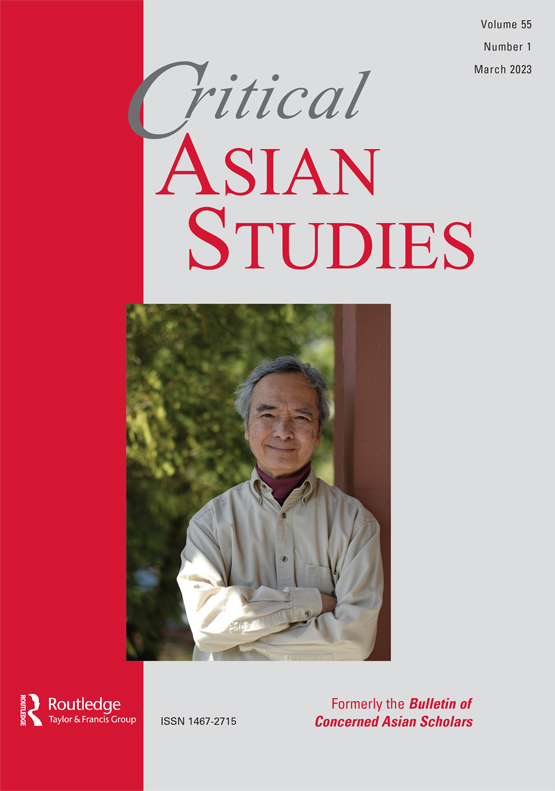
1997
Synopsis: On December 6, 1991, Korean women who identified themselves as "military comfort women" filed a lawsuit against the Japanese government for violating their human rights. They demanded an official apology, compensation payments... Thanks to this action, these women have finally begun to break the silence and reveal the sexual war crimes committed by the Imperial Japanese Army nearly fifty years ago.

1999
Synopsis: The military "comfort women" of the Imperial Japanese Army during the Second World War offer an extreme case of institutionalized sexual violence against women. Trafficking in women is a form of sexual slavery in which women are transported across national borders and traded for prostitution. In this way, their bodies are displaced and commodified by other powers. Today, Japan is the world's most notorious country for recruiting these women.
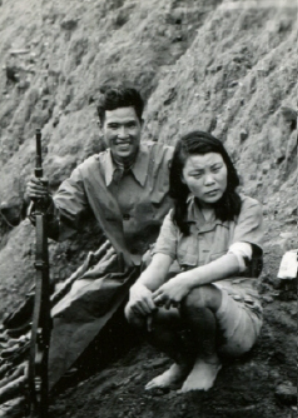
1999
Synopsis: The military "comfort women" of the Imperial Japanese Army during the Second World War offer an extreme case of institutionalized sexual violence against women. Trafficking in women is a form of sexual slavery in which women are transported across national borders and traded for prostitution. In this way, their bodies are displaced and commodified by other powers. Today, Japan is the world's most notorious country for recruiting these women.
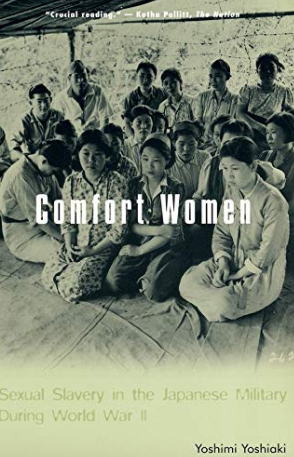
2000
Synopsis: Yoshimi Yoshiaki provides a wealth of documents and testimonies to prove the existence of some 2,000 centers where up to 200,000 Korean, Filipino, Taiwanese, Indonesian, Burmese, Dutch, Australian and some Japanese women were held for months and forced to engage in sexual activities with Japanese servicemen. Many of the women were teenagers, some as young as fourteen. To this day, the Japanese government has neither acknowledged its responsibility for the creation of the toilet block system, nor granted direct compensation to the former comfort women.

2017
Synopsis: Neither country has truly or officially apologized to survivors. Beginning with an analysis of this political silence, the author shows the emergence of survivor voices supported by feminists, as well as the contribution of feminist research to the reconstruction of the history of the "comfort women", thanks in particular to the work of the Team of Testimonies. However, the question of responsibility remains since, with South Korea's consent, Japan has still not made an official apology, on the one hand, and because of recurrent campaigns by Japanese revisionists, on the other.

2014
Synopsis: The article examines the emergence in the 1990s of the issue of "comfort women" and the conditions that led to the holding of the Women's International Tribunal to judge military sexual slavery in Japan. He argues that this was a response both to the needs of the victims and to the prevailing revisionism concerning the abuses committed during the Asia-Pacific War by the Japanese military, which had been the subject of the Tokyo war crimes trials of 1946-1948. The Women's Tribunal represents an important moment in the recognition and condemnation of the specific violence perpetrated against women in wartime and during armed conflicts.
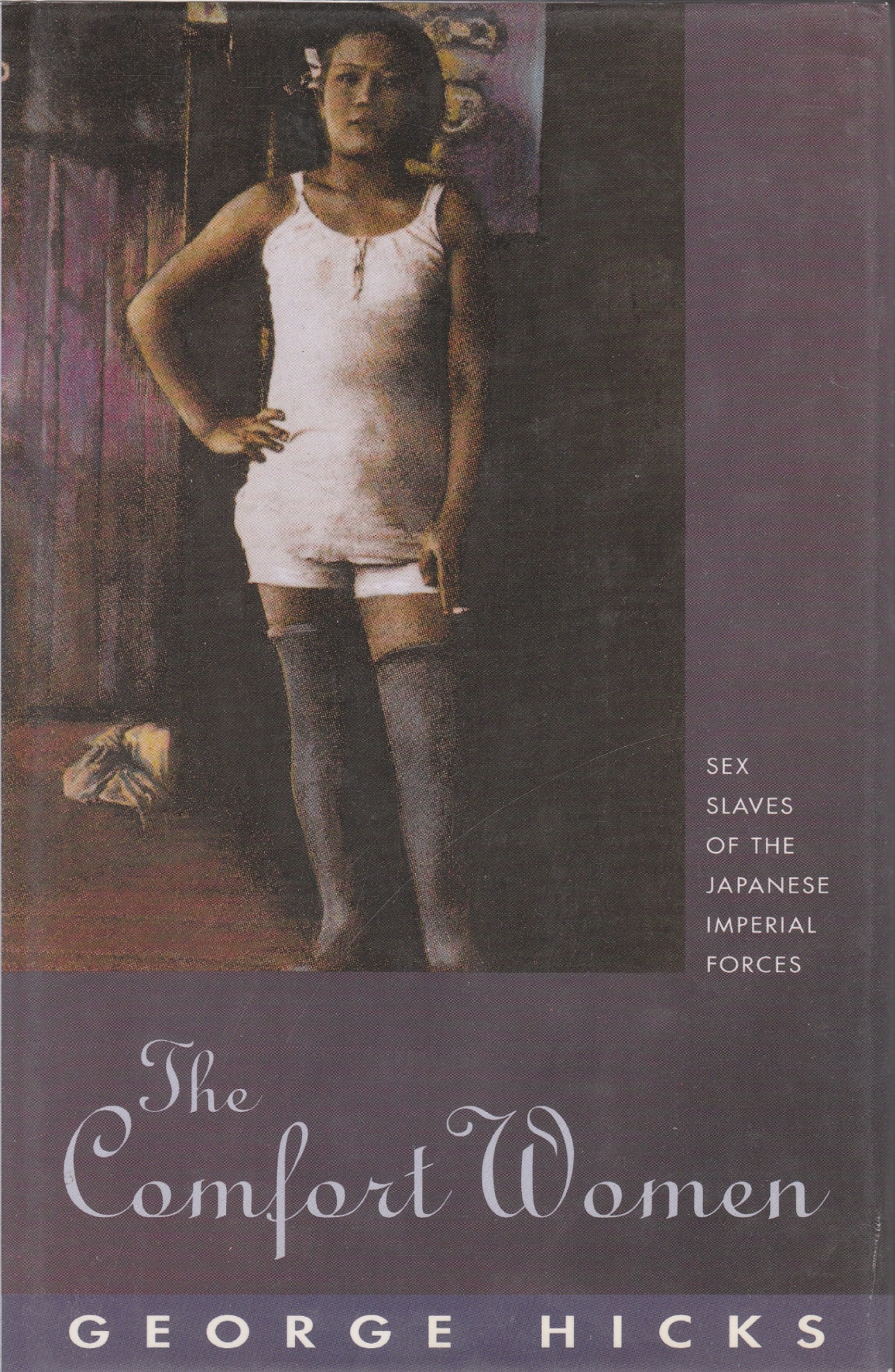
1995
Synopsis: Over 100,000 women were victims of forced prostitution - Japanese military prostitution - during the Second World War. Unlike other wartime atrocities, the surviving comfort women were too ashamed to tell their stories, playing into the hands of a Japanese government determined to hush things up. However, almost 50 years after the war, the women began to speak out, researchers delved into the archives, a high-ranking Japanese official confessed and the story was revealed, finally forcing the Japanese government to admit the truth.

2019
Synopsis: Korea, 1943. Hana has lived her whole life under Japanese occupation. As a haenyeo, a woman sea diver, she enjoys an independence on Jeju Island that few other Korean women can claim. Until the day Hana saves her younger sister, Emi, from a Japanese soldier and allows herself to be kidnapped in her place. Like thousands of other Korean women, she became a comfort woman in Manchuria. Emi spends her life searching for Hana and trying to forget the sacrifice her sister made. But haenyeo are women of power and strength... More than sixty years later, will Emi be able to face the past and the horrors of war to finally find peace?
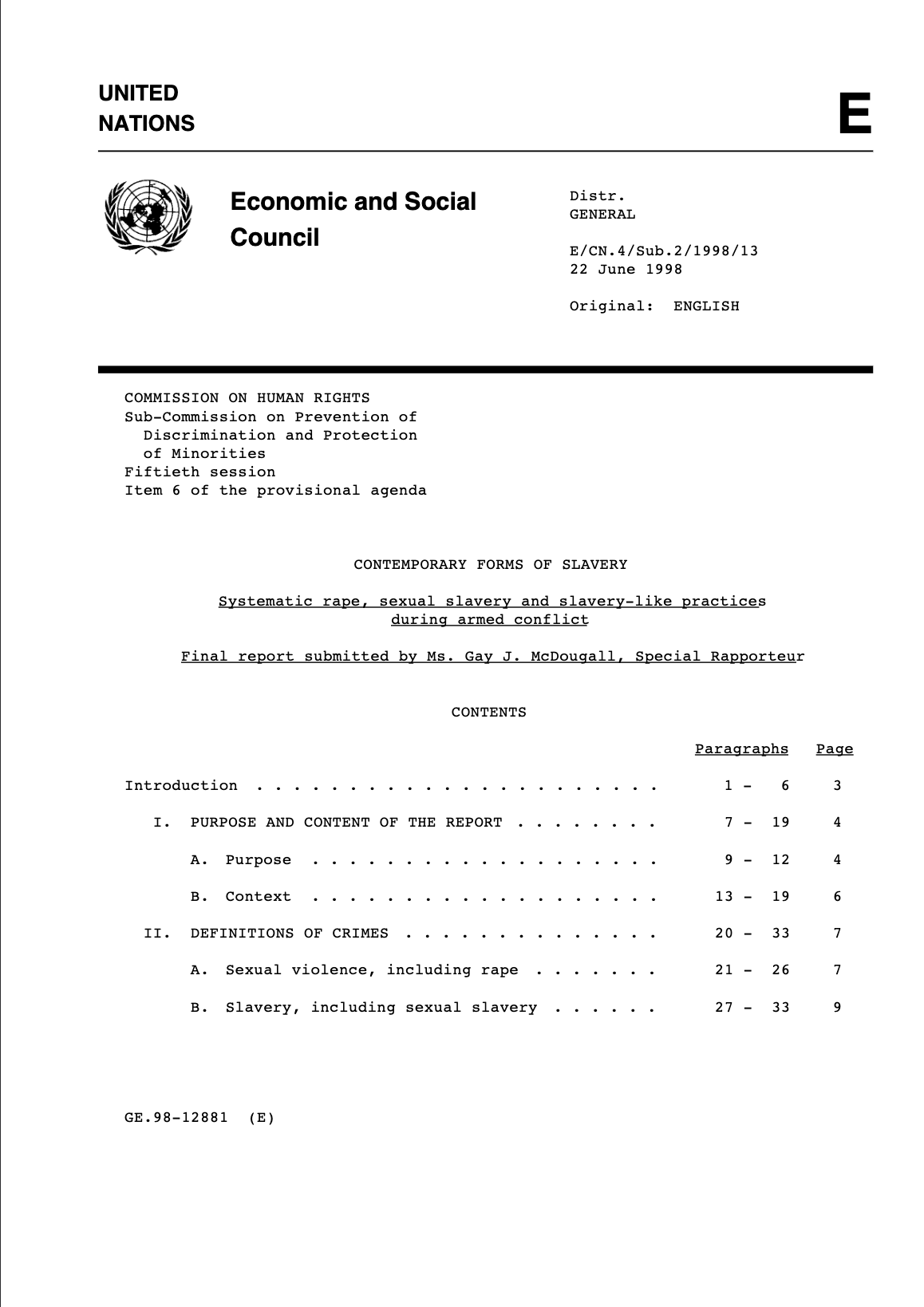
1998
Synopsis: At its forty-fifth session, the Sub-Commission on Prevention of Discrimination and Protection of Minorities, taking note of the information transmitted to the Sub-Commission by the Working Group on Contemporary Forms of Slavery concerning the sexual exploitation of women, as well as other forms of forced labor, in wartime, decided to appoint Ms Linda Chavez as Special Rapporteur to undertake a detailed study of the situation with regard to systematic rape, sexual slavery and slavery-like practices in wartime, particularly in the event of internal armed conflict.

2019
Synopsis: Support for the demands of former comfort women became a major political issue for feminists, and the Beijing conference in 1995, where 5,700 Japanese women registered, was one of them. But this mobilization had a contrasting effect in this region: among other things, it aroused support that can be characterized as nationalist and inclusive in South Korea, while it increasingly divided Japanese society...

2021
Synopsis: The Korean "comfort women" case is now well known, especially since Karen Knop and Annelise Riles wrote an article on its private international law aspects. For the first time, the Korean courts have recognized the right of so-called "comfort women" to compensation for abuses committed against them. Indeed, on January 8, 2021, the Seoul Central District Court ordered the Japanese state to pay 100 million won (around 75,000 euros) to each of the twelve claimants for compensation (Seoul Central District Court, Division 34 (Civil Affairs), no. 2016GaHap505092).
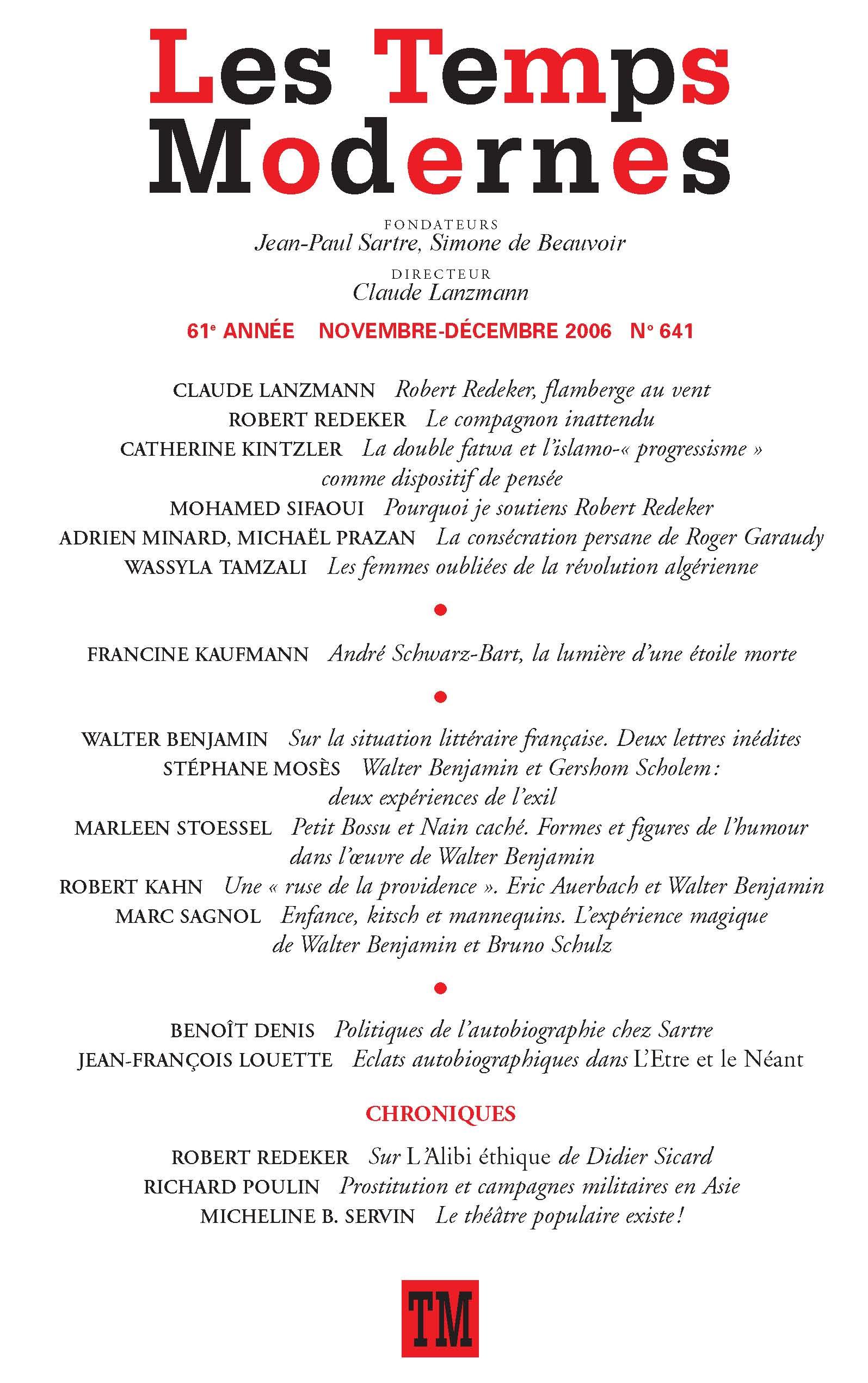
2006
Synopsis: Sex industries. Modern warfare has led to a considerable increase in prostitution and its "rational" organization for the benefit of armies. Hundreds of thousands, if not millions, of women and girls were put to the sexual service of the military in brothels financed and organized by the States. Examples abound: from comfort women for Japanese servicemen, to camptowns and rest and recreation facilities for GIs, to BMCs (military field brothels) for French and colonial troops and German "sanitary establishments" during the Second World War. Obviously, the rational organization of prostitution for the armed forces required, among other things, the organization of the trafficking of women and children for prostitution.

2007
Synopsis: Since 1990, the progress of democratization in Asia has created an environment conducive to mobilization around the issue of "comfort women". First, Korean and Japanese historians published new research and some victims began to speak out. During the Korean President's official visit to Japan, the Korean Committee for Women Sexually Enslaved by the Japanese Army, set up in 1990, organized a movement of petitions calling for the payment of compensation to the victims, full disclosure of the facts and an apology from the Japanese government.

